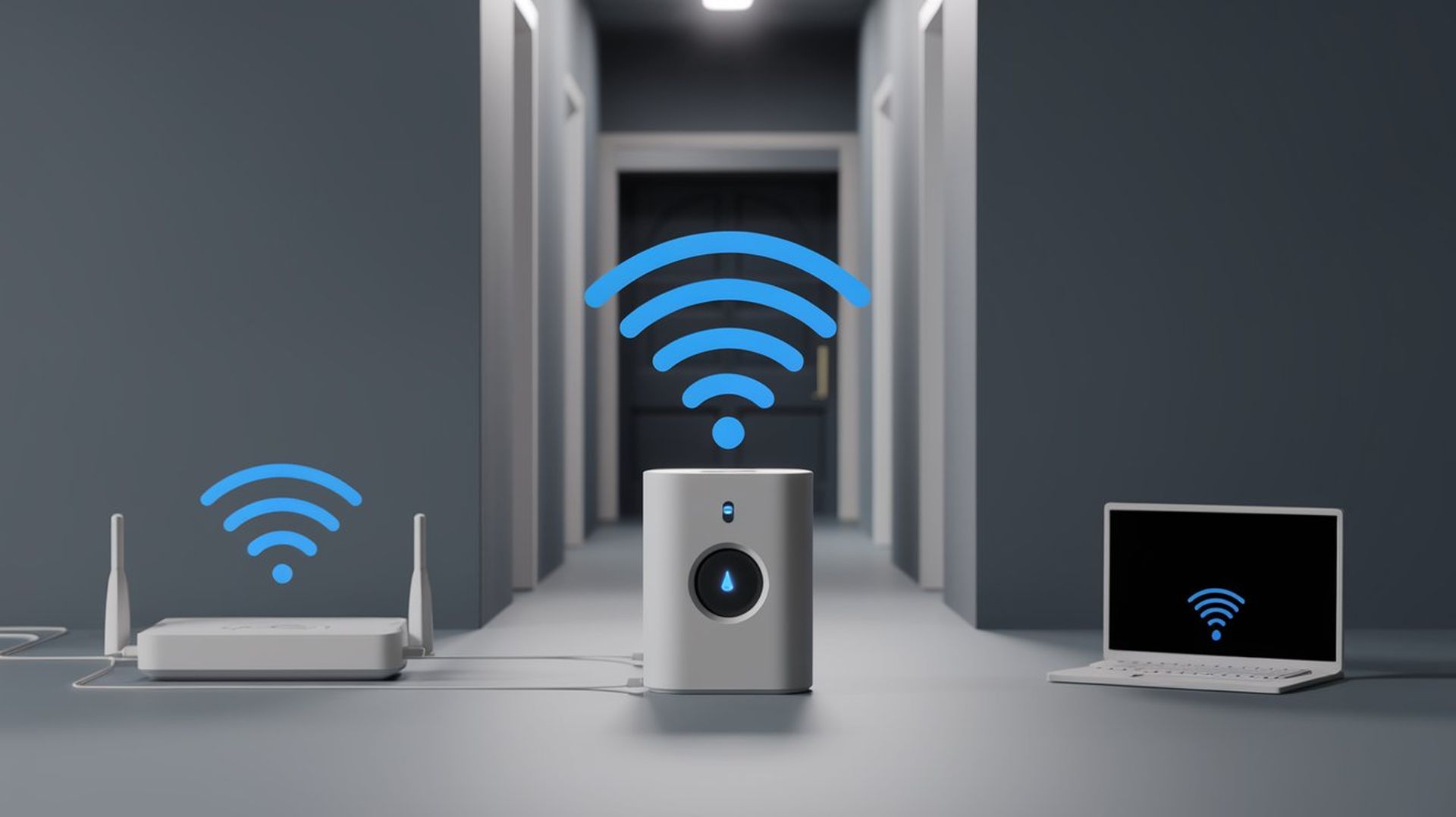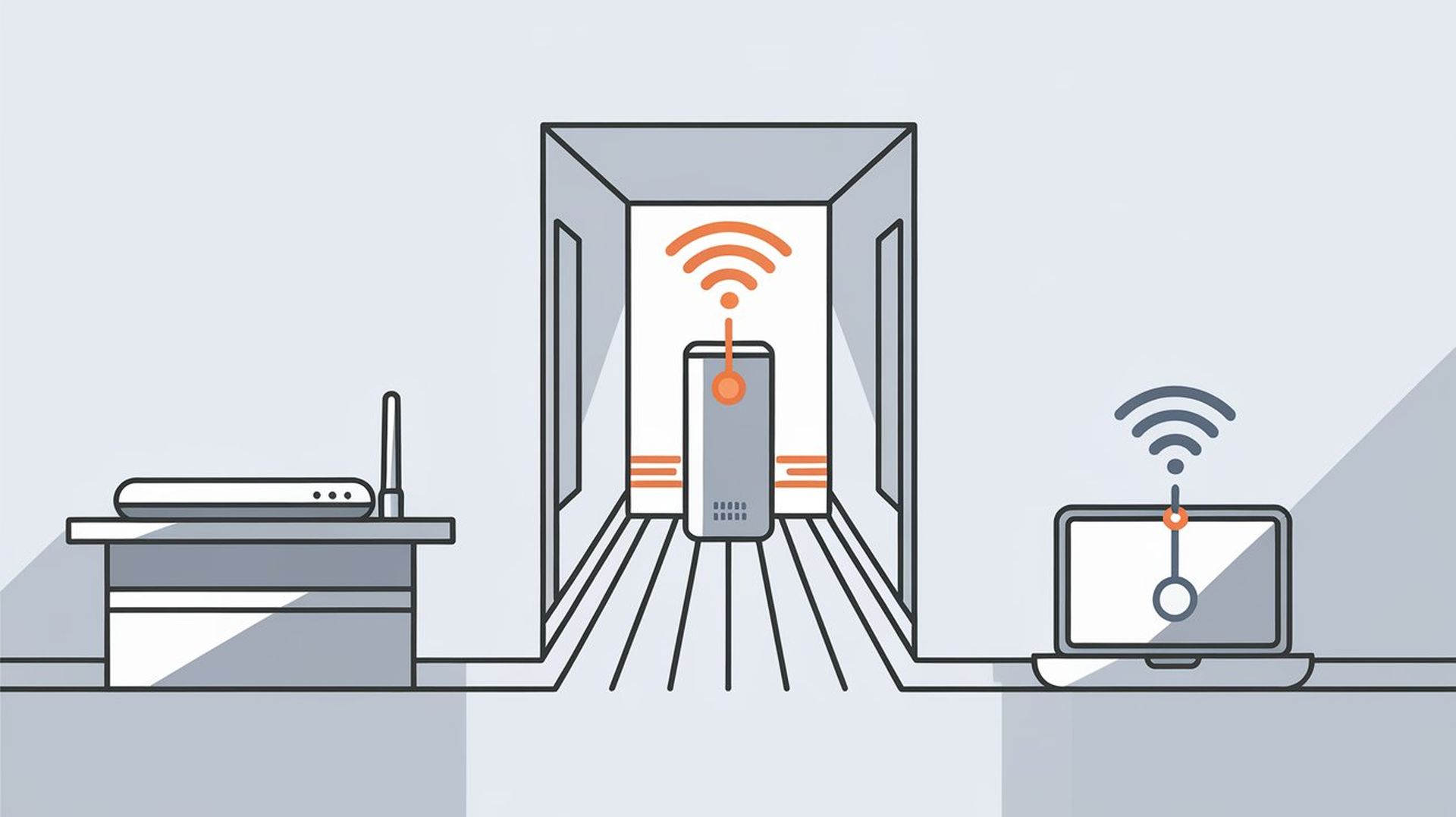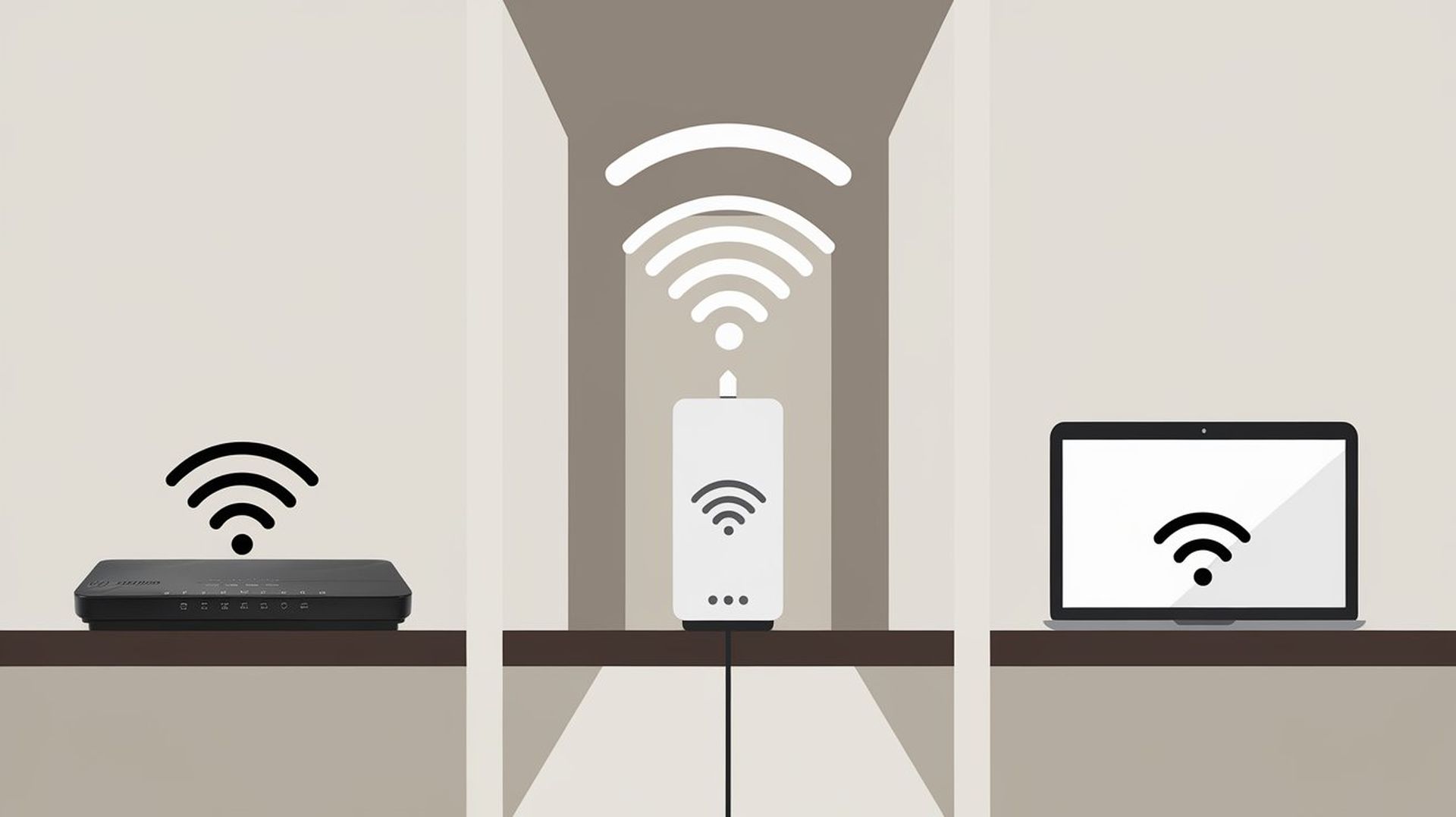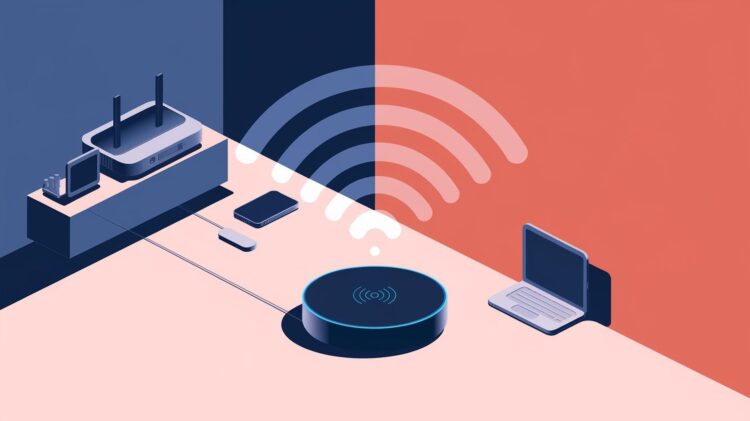A WiFi extender can boost your internet signal in areas where your connection is weak. But before buying one, it’s important to understand exactly what it does, who needs one, and when it might not be the right solution. Below, we’ll explore these questions to help you decide whether a WiFi extender is right for your home or office.
What does a WiFi extender do?
A WiFi extender amplifies your existing internet signal and rebroadcasts it to areas of your home or office where the signal is weak or unreachable. Essentially, it acts as a bridge between your router and devices further away, helping to fill in “dead zones.” However, it doesn’t create new bandwidth or speed up your connection; it spreads the signal over a larger area.
For example, if your router is in the living room but your upstairs bedroom has weak WiFi, a WiFi extender placed halfway between can help boost the signal so you can use the internet upstairs more reliably.
Who should buy a WiFi extender?
WiFi extenders are great for people who:
- Live in large homes: If your home has multiple floors or large rooms where your WiFi doesn’t reach, a WiFi extender can help provide coverage in those far-off corners.
- Experience weak signals in specific areas: A WiFi extender can improve your coverage in those spots if you consistently have trouble connecting in a particular room or section of your house.
- Don’t want to upgrade their router: Instead of purchasing an expensive, high-powered router, a WiFi extender can be a more affordable solution to expand your current setup’s reach.

Who shouldn’t buy a WiFi extender?
WiFi extenders aren’t the best choice for everyone. You might want to skip buying one if:
- You have a fast internet plan but experience slow speeds: Extenders can’t create faster internet. If your connection is slow even when you’re close to the router, the problem could be with your internet service provider (ISP), and an extender won’t fix that.
- You want seamless coverage throughout your home: Extenders can sometimes create multiple network points, meaning you’ll have to manually switch between networks as you move through the house, which can be a hassle. In these cases, mesh WiFi systems are often a better alternative, providing consistent coverage without switching networks.
- Your router is outdated: If your router is old and unable to handle modern internet speeds, a WiFi extender won’t help much. Upgrading your router could be a better option.
When won’t a WiFi extender work?
WiFi extenders aren’t magic fixes for every connection problem. They may not work well in these scenarios:
- Long distances between the extender and the router: If your extender is too far from the router, it won’t pick up a strong enough signal to boost, making it ineffective.
- Thick walls and interference: Extenders can struggle with obstructions like thick walls or devices (like microwaves) that interfere with the WiFi signal.
- Overly congested networks: If too many devices are connected to your network and use a lot of bandwidth, the extender won’t improve the situation. In that case, upgrading to a faster internet plan or a better router might be necessary.

Other uses for a WiFi extender
While the primary job of a WiFi extender is to boost your signal, they can also be used in creative ways:
- Expanding outdoor WiFi: If you want to use WiFi in your backyard or garage, placing a WiFi extender near an outdoor wall can help you get coverage outside.
- Connecting smart devices: If you have smart devices (like security cameras, doorbells, or smart bulbs) in areas with weak WiFi, an extender can ensure these devices stay connected.
- Bridging multiple floors: In homes with multiple floors, an extender can create a stronger connection between levels, making it easier for everyone to access the internet no matter where they are.
The top 5 WiFi extenders of October 2024
If you’re looking to boost your WiFi signal, here are some of the top WiFi extenders in October 2024:
- TP-Link RE605X: A WiFi 6 extender offering reliable dual-band coverage. It’s affordable, easy to set up, and enhances signal in dead zones.
- Netgear Nighthawk AX8 (EAX80): Ideal for large homes, this powerful extender supports WiFi 6 with great range and speed.
- TP-Link RE700X: This extender provides strong WiFi 6 coverage and is simple to install.
- Netgear EX8000 Tri-band Extender: It offers high performance with tri-band WiFi, perfect for improving speeds across multiple devices.
- Asus RP-AX58: Known for solid WiFi 6 support, this compact extender is great for mid-sized homes.
These devices offer solid solutions depending on your space and internet needs.

Additional considerations
A WiFi extender can be a simple, affordable solution for extending the range of your current WiFi network, but it’s not a one-size-fits-all fix. It can be a good option if you have a large home or experience dead zones in certain areas. However, other solutions, like upgrading your router or switching to a mesh WiFi system, may be more effective if you’re looking for faster internet speeds or struggle with network congestion. Be sure to assess your specific needs before making a decision.
Before investing in a WiFi extender, remember a few more things. First, while a WiFi extender can help spread your existing signal, it doesn’t increase your internet speed. Single-band extenders may slightly reduce speeds due to the way they rebroadcast signals. For better performance, it’s recommended to go with a dual-band extender, which can handle both 2.4 GHz and 5 GHz frequencies.
Also, a WiFi extender might not be enough for larger homes or environments with thick walls or many interference sources (like microwaves). In such cases, a mesh WiFi system may offer better results by providing seamless coverage across the entire space without creating multiple network points. Lastly, if your current router is outdated or not compatible with newer WiFi standards, such as 802.11ac, upgrading your router might be a more practical and long-term solution for faster, more stable internet.
Image credits: Furkan Demirkaya/Ideogram





